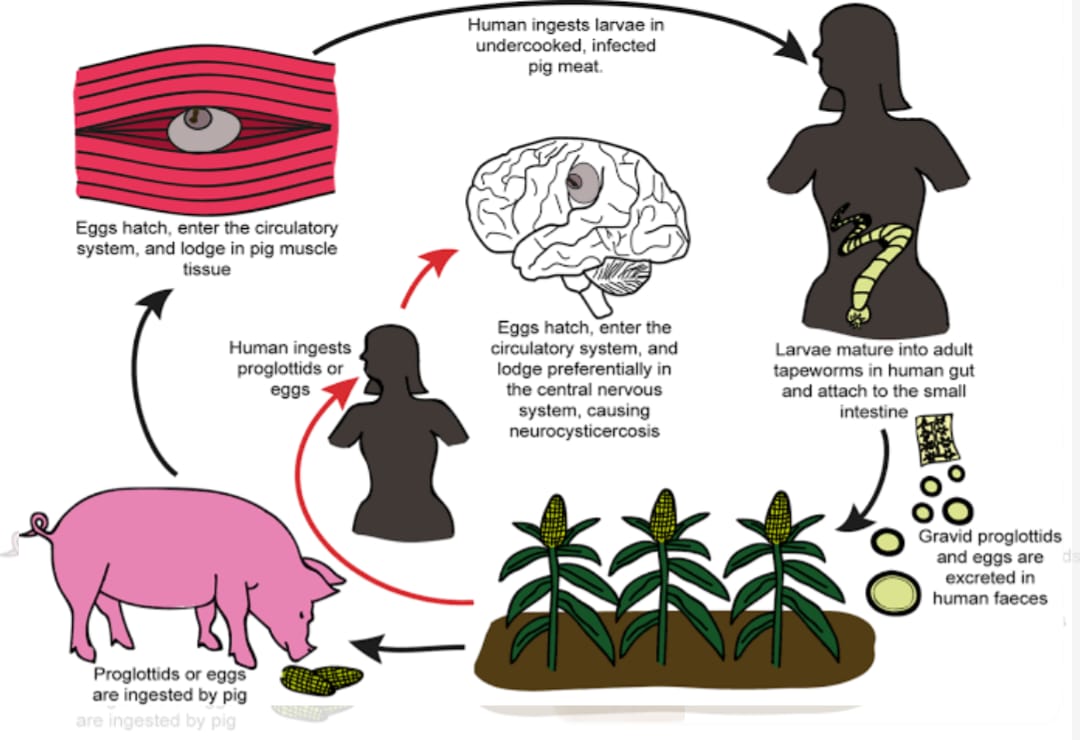Neurocysticercosis
Neurocysticercosis is a preventable parasitic infection, caused by accidental ingestion of eggs of Taenia solium (ie, pork tapeworm), usually due to contamination of food by people with taeniasis. In developing countries, neurocysticercosis is the most common parasitic disease of the nervous system and is the main cause of acquired epilepsy.
Signs and symptoms: -
Clinical manifestations of neurocysticercosis vary with the locations of the lesions, the number of parasites, and the host's immune response.
Many patients are asymptomatic.
Possible symptomatic presentations include the following:
• Epilepsy: Most common presentation (70%)
• Headache, dizziness
• Stroke
• Neuropsychiatric dysfunction
Onset of symptoms is usually subacute to chronic, but seizures present acutely.
Abnormal physical findings, which occur in 20% or less of patients with neurocysticercosis, depend on where the cyst is located in the nervous system and include the following:
• Cognitive decline
• Dysarthria
• Extraocular movement palsy or paresis
• Hemiparesis or hemiplegia, which may be related to stroke, or Todd paralysis
• Hemisensory loss
• Movement disorders
• Hyper/hyporeflexia
• Gait disturbances
• Meningeal signs
Diagnosis: -
Neurocysticercosis is commonly diagnosed with the routine use of diagnostic methods such as computed tomography (CT) and magnetic resonance imaging (MRI) of the brain.
Homoeopathic Treatment: -
Homeopathic medicines are effective for treating NCC. Homeopathic remedies are completely safe and have no harmful side effects. When treating NCC with homeopathic medicine you are addressing the symptoms. The Food and Drug Administration (FDA) has approved homeopathic medicine considering as very effective in NCC treatment. The various expression of disease can be managed effectively, gently, and safely with homeopathic medicine.

